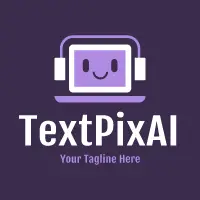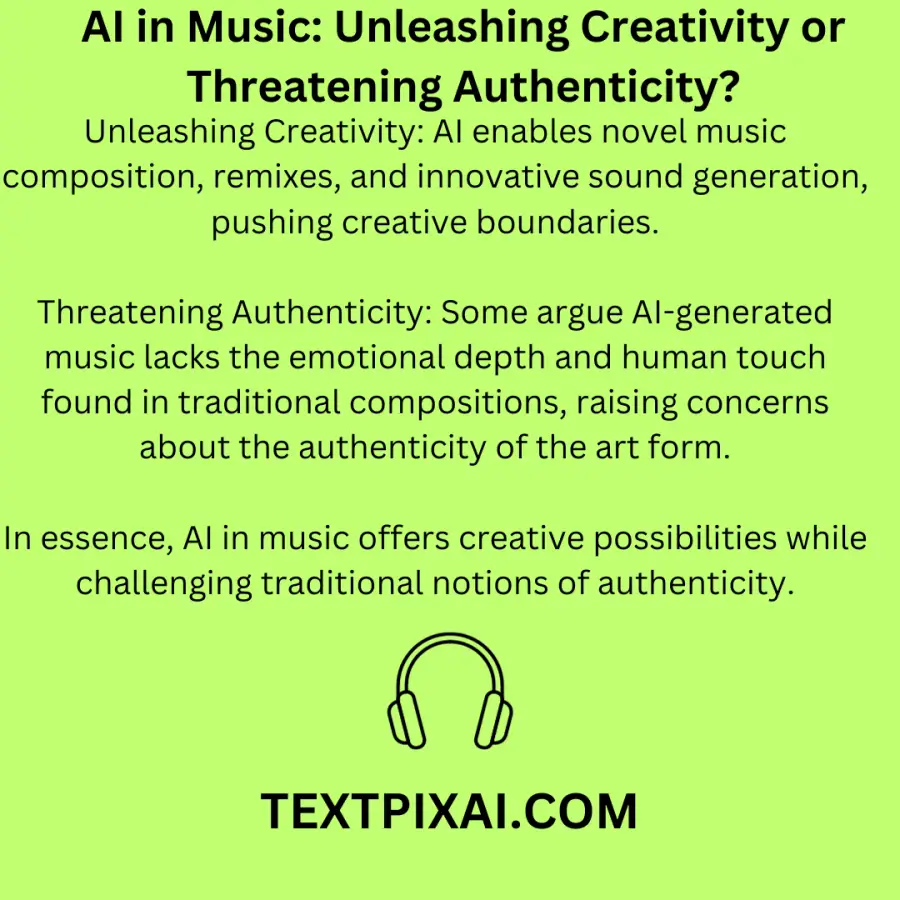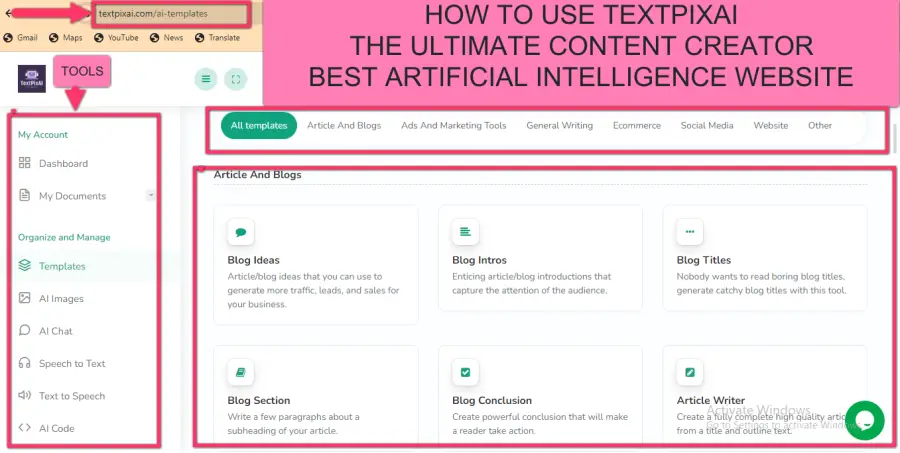AI in Music: Unleashing Creativity or Threatening Authenticity?
Introduction
In the age of technology, artificial intelligence (AI) has permeated various aspects of our lives, including the world of music. AI in music is a topic that has sparked both excitement and concern. On one hand, AI promises to revolutionize the music industry by enhancing creativity and efficiency. On the other hand, it raises questions about the authenticity of music created by machines rather than human artists. In this article, we will delve into the impact of AI on music, exploring its potential to unleash creativity and the challenges it poses to the authenticity of musical expression.
The Rise of AI in Music
Transforming Music Composition
Artificial intelligence has empowered musicians and composers with powerful tools for creating music. AI algorithms can analyze vast datasets of music, identifying patterns and trends that can inspire new compositions. For example, AI can help composers explore unique chord progressions or experiment with unconventional melodies, expanding the boundaries of musical creativity.
Personalized Music Recommendations
AI-driven music streaming platforms like Spotify and Apple Music use machine learning to curate playlists tailored to individual tastes. By analyzing listening habits and preferences, AI ensures that users discover new music they are likely to enjoy. This personalization enhances the music listening experience, introducing listeners to a broader range of artists and genres.
Enhancing Music Production
In the studio, AI-powered tools assist in music production. From auto-tuning vocals to generating drum patterns, AI streamlines the production process, allowing artists to focus on their creative vision. This efficiency not only saves time but also enables musicians to experiment with new sounds and styles.
Breaking Language Barriers
AI can bridge language barriers by translating lyrics and enabling global collaboration among artists. Musicians from different linguistic backgrounds can now collaborate seamlessly, opening up new creative opportunities and fostering cross-cultural exchanges.
Challenges to Authenticity
Loss of Human Touch
One of the primary concerns regarding AI in music is the potential loss of the human touch. Music has always been a deeply emotional and personal form of expression. AI-generated music, while impressive, may lack the depth of human emotion and storytelling that resonates with listeners.
Copyright and Plagiarism
As AI generates music based on vast datasets, there is a risk of unintentional plagiarism. Artists may inadvertently produce compositions that closely resemble existing works, leading to copyright disputes. Maintaining originality in a world saturated with AI-generated music becomes a challenge for artists.
Devaluation of Musicianship
The widespread use of AI in music production can lead to a devaluation of musicianship. With AI handling various aspects of music creation, some may argue that the skill and craftsmanship of traditional musicians are undermined, potentially discouraging aspiring artists.
Overreliance on Algorithms
The reliance on AI algorithms for music recommendations may narrow listeners' musical horizons. While personalization is beneficial, it could lead to a "musical bubble," where listeners are exposed to a limited range of music, missing out on the serendipity of discovering new and diverse artists.
Striking a Balance
While AI offers undeniable benefits in the world of music, it is crucial to strike a balance between technological innovation and artistic authenticity. Musicians and industry stakeholders must:
- Embrace AI as a creative tool rather than a replacement for human artistry.
- Implement ethical guidelines to ensure fair usage of AI-generated content.
- Promote transparency in music production processes involving AI.
- Encourage collaboration between AI developers and musicians to enhance musical expression.
Conclusion
AI in music is a double-edged sword, promising innovation and efficiency while posing challenges to the authenticity of musical expression. The future of music lies in the hands of those who can harness AI's potential without sacrificing the emotional depth and originality that make music a profound art form.
FAQs
1. Is AI capable of composing emotionally resonant music?
- AI can generate music that mimics emotions, but whether it truly resonates with listeners on a deep emotional level remains a subject of debate.
2. What safeguards are in place to prevent AI-generated music from infringing on copyrights?
- Copyright protection relies on identifying instances of plagiarism through thorough checks and legal measures, similar to how it's done with human-created music.
3. Can AI replace human musicians entirely?
- AI can assist and augment human musicians, but it is unlikely to fully replace the emotional and creative depth that humans bring to music.
4. How can musicians ensure their authenticity in an AI-dominated music industry?
- Musicians can maintain authenticity by actively participating in the music creation process, infusing their unique style and emotions into AI-assisted compositions.
5. What role does AI play in preserving and promoting traditional music from different cultures?
- AI can aid in the preservation and promotion of traditional music by making it accessible through translations, transcriptions, and collaborations among artists from diverse backgrounds.








